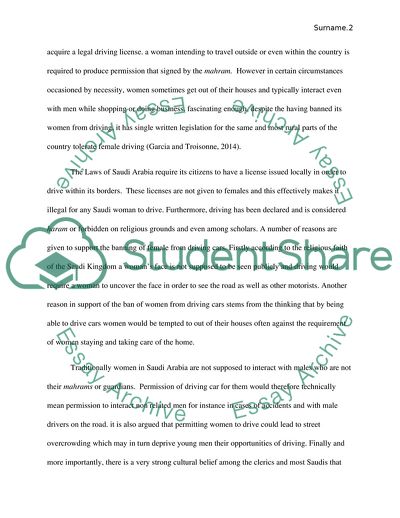Cite this document
(Women and Driving Laws in the Kingdom of Saudi Arabia Assignment, n.d.)
Women and Driving Laws in the Kingdom of Saudi Arabia Assignment. https://studentshare.org/sociology/1849877-women-driving-in-saudi-arabia
Women and Driving Laws in the Kingdom of Saudi Arabia Assignment. https://studentshare.org/sociology/1849877-women-driving-in-saudi-arabia
(Women and Driving Laws in the Kingdom of Saudi Arabia Assignment)
Women and Driving Laws in the Kingdom of Saudi Arabia Assignment. https://studentshare.org/sociology/1849877-women-driving-in-saudi-arabia.
Women and Driving Laws in the Kingdom of Saudi Arabia Assignment. https://studentshare.org/sociology/1849877-women-driving-in-saudi-arabia.
“Women and Driving Laws in the Kingdom of Saudi Arabia Assignment”. https://studentshare.org/sociology/1849877-women-driving-in-saudi-arabia.


